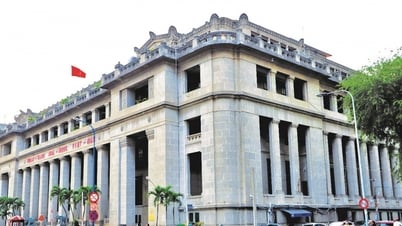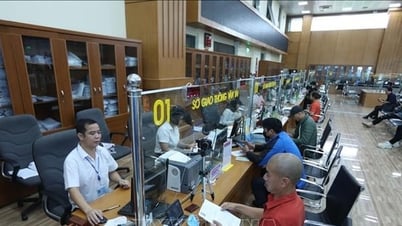According to Mr. Dau Anh Tuan - Deputy General Secretary and Head of the Legal Department of the Vietnam Federation of Commerce and Industry (VCCI), the Vietnamese business legal system in 2024 and the first months of 2025 witnessed an unprecedented speed of change, with a series of laws, decrees, and circulars being issued consecutively to remove obstacles for businesses.
According to VCCI statistics, in 2024, Vietnam passed 31 laws - double the number of the previous year. The government issued 182 decrees, and ministries and branches issued 629 circulars. Notably, at the 9th session of the National Assembly, scheduled to open early this May, up to 35 laws and resolutions will be discussed and passed - a huge volume.
A prominent trend is "one law amending many laws", with a shortened process. This reflects a positive change in quick policy response, promptly removing practical obstacles for businesses.
"However, this approach also poses risks if the scope of the amendment is too broad or if there is a lack of careful preparation. Even guiding decrees face difficulties due to the tight time frame, putting great pressure on businesses - especially small and medium-sized enterprises - to monitor, understand and comply promptly," said Mr. Tuan.

Typically, the Law on Bidding, which was just promulgated in 2024, was amended in the January 2025 National Assembly session and will continue to be amended in the May session to implement Resolution 57 of the Politburo on breakthroughs in science and technology development, innovation and national digital transformation. The BT (build-transfer) contract form, which was previously eliminated, has now been brought back in a law amending four recently passed laws.
This rapid change in policy demonstrates flexibility, but also reflects the constant pressure to adjust, making it difficult for businesses without a dedicated policy monitoring department.
Also related to Resolution 57 of the Politburo, according to Mr. Tuan, this is a typical example - a document with new and detailed thinking, highly appreciated by the scientific and business community. Just a few months after its promulgation, the National Assembly promptly passed Resolution 193 to remove obstacles in implementation, without waiting for the Law on Science - Technology and Innovation to be completed.
According to Mr. Tuan, a major turning point in the law-making process is the passing of the Law on Promulgation of Legal Documents (amended) at the extraordinary session in early 2025. This law significantly shortens the legislative process: instead of taking 2 years, many laws can now be developed and passed in just 6-7 months. In particular, policies and laws are now developed in parallel, not sequentially as before. The law focuses on principles, while details are assigned to the Government and ministries to regulate through decrees and circulars.
The Deputy Secretary General of VCCI assessed that this new approach helps the enforcement agency respond more quickly, but without careful consultation, it can have negative consequences for businesses and the law-making agency itself. Another important change is the sharp reduction in the time for collecting opinions: from 60 days to 20 days. The speed of legal change is so fast that even VCCI - the agency closely following policies - has difficulty in fully updating.
“Changing policies without adequate consultation and multi-dimensional consideration can easily create inappropriate regulations that negatively affect business operations. If businesses do not pay attention and do not invest in policy monitoring, even a small change can cause great losses,” Mr. Tuan warned.
From the above reality, Mr. Tuan recommends that businesses need to strengthen their policy monitoring department. Because changes in policies, if not promptly grasped, can cause great damage to businesses, no less than risks from the market.
The rapid transition from Party resolutions to legal regulations is a manifestation of determination and innovation in policy management. However, legal reform still needs to be more substantial and more consistent among ministries and sectors. In addition to institutional reform efforts, it is necessary to pay special attention to the quality of the law-making process, increase consultation, publicity and transparency, and ensure a reasonable transition period so that businesses can adapt and implement effectively.
Source: https://doanhnghiepvn.vn/kinh-te/chinh-sach/luat-thay-doi-nhanh-doanh-nghiep-lieu-xoay-kip/20250503104415089







![[Photo] Thousands of Buddhists wait to worship Buddha's relics in Binh Chanh district](https://vphoto.vietnam.vn/thumb/1200x675/vietnam/resource/IMAGE/2025/5/3/e25a3fc76a6b41a5ac5ddb93627f4a7a)




















































































Comment (0)